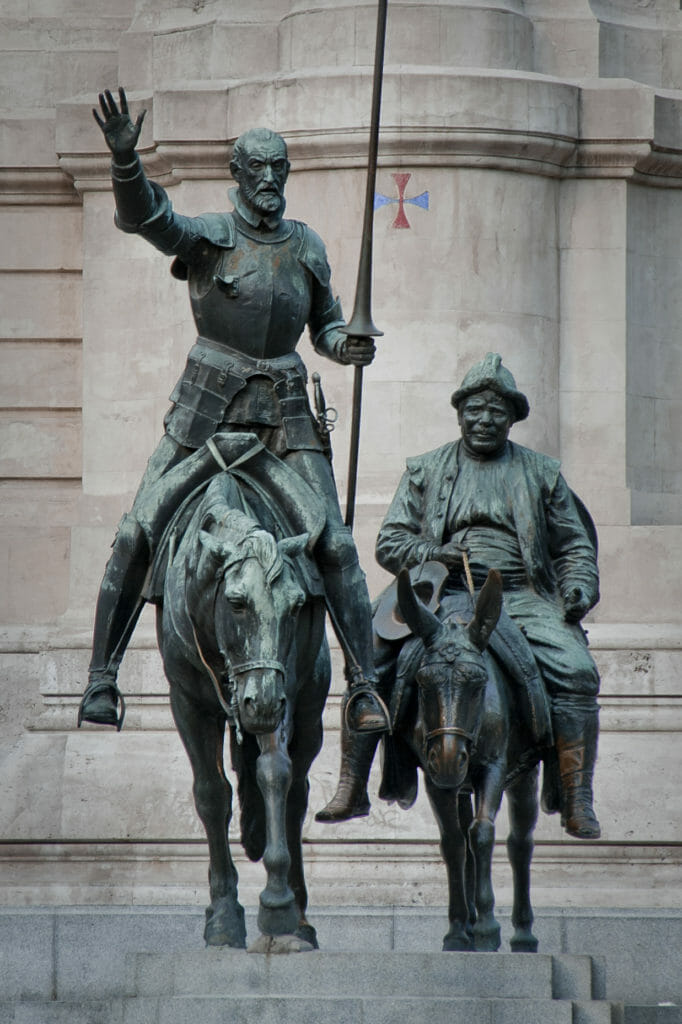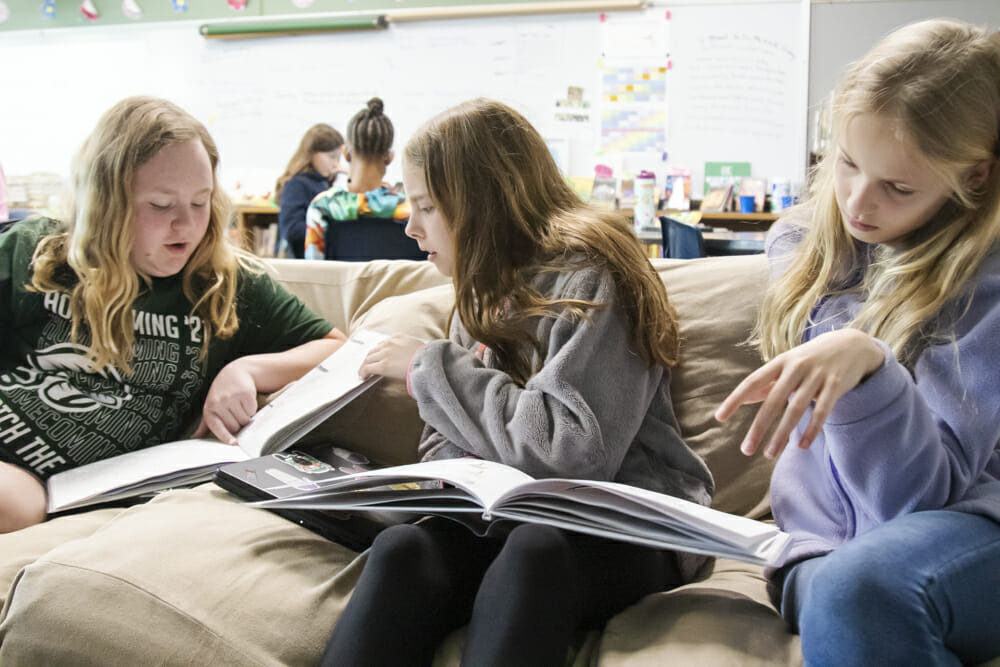Yesterday afternoon, I sent out a query to all of our Middle and Upper School students: “Who is one of your favorite fictional characters?” I told them it could be someone from a story or a novel, a movie or a TV show, a video game, a cartoon, a legend or a fable, a mythological tradition—any narrative form. The variety of their responses reflects not only the durability and significance of stories in our lives, but also their extraordinary proliferation across all media in recent years.
Adi in seventh grade is a fan of Hermes in Greek mythology. (“He is one of the kindest gods, and he is very smart and agile. He is also the only Olympian who is able to visit the underworld.”) Ash in 12th grade admires Percy Jackson “because he’s a hero who isn’t perfect, which makes him easier to connect with, and he is supported by his friends.” Shrek received numerous mentions (from Ashton and Qasim in sixth grade, Drew in seventh grade, and Ian and Matthew in eighth grade) for being “funny and iconic,” “super intelligent,” “chilling with Donkey,” and, of course, “an onion.” Ruhani in seventh grade likes Dobby from the Harry Potter series. (“He promises to protect his friends no matter the danger. He’s such a loving and caring guy! And he’s really funny, too. He always tries to lighten the mood.”) Johanna, also in seventh grade, admires Darcy Olsson from Heartstopper (“She’s a really funny and considerate character”), and Delaney in ninth grade loves Wall-E (“His compassion, especially as a robot, is truly beautiful”).
I think my own answer to the “favorite character” question would be Don Quixote, having just finished reading Edith Grossman’s marvelous translation of the novel by Miguel de Cervantes that bears his name. (I will admit to being a little obsessed with Spanish culture since my family’s journey to Madrid in November, and also a little embarrassed at having reached my 50s without having read Don Quixote in full.) I am particularly fascinated, as are so many of the people whom Don Quixote encounters on his adventures, by the resolute belief in tales of quests, princesses, and dragons—and the belief in himself as the hero of such a tale—that delude an otherwise well-educated, even brilliant man. “Didn’t I tell you, Señor Don Quixote,” exclaims his long-suffering sidekick, Sancho Panza, after seeing his master struck in the ribs and jaw and unhorsed by the slings and stones of shepherds, “that it wasn’t armies you were attacking but flocks of sheep?” Don Quixote demurs, insisting that charging the sheep was justified and that it is Sancho and not he who is deluded. “You should know, Sancho, that it is very easy for enchanters to make us see whatever they wish. Mount your donkey and follow them, and you will witness how these flocks resume their original form as men. But do not go now; come here and see how many molars and teeth I have lost, because it seems to me I do not have a single one left in my mouth.”

More striking than Don Quixote’s detachment from reality is the impossibility of knowing, as the novel unfolds, whether Cervantes intends us to regard this „knight errant“ as a genius or a fool. Lest we assume the latter too quickly, we might ask ourselves how often we blame the “enchanters” in our own lives for our misfortunes. (The news media? Corporations? Big government?) When was the last time you said, “That’s just what they want you to think”? What was the last flock of sheep you attacked? I just hope you still have all your molars! “More than a novel,” the writer Ilan Stavans observed not long ago, “Don Quixote is a manual for living.” In reflecting on her work as its translator, Edith Grossman recalled that “when I first started reading it, I thought it was the most tragic book in the world, and I would read it and weep,” but then “when I was working on the translation, I was actually sitting at my computer and laughing out loud.” Cervantes, she says, “never lets the reader rest. Because as soon as you think you understand something, he introduces something that contradicts your premise.”
We read stories, and stories read us. The work is never done. I am thrilled that our MICDS students have so many characters inhabiting their lives, both real and imagined. Ellie in fifth grade loves Sophie Foster from Keeper of the Lost Cities. (“She fights for her rights, and fights for good.”) Lola in eighth grade admires Aly from the fiction of Tamora Pierce. (“She is clever and unflappable.”) Soham in sixth grade likes Iron Man because “he makes really funny jokes,” and Amey in eighth grade thinks Spongebob Squarepants is “insanely funny and inspirational.” Yash in seventh grade is a fan of Winnie the Pooh (“He is positive in every situation”), and Tristan in 11th grade loves The Flash (“He never seeks out vengeance, and he always tries to get his enemies to change for the better—and he’s fast like me”). Bridget in 11th grade likes Coach Beard from Ted Lasso. “He’s funny and reminds me of all of my dad’s friends,” she says. “He seems very realistic because of his flaws.” So does Don Quixote, come to think of it, who celebrates his 418th birthday this year. We read stories, and stories read us. “Because I want you to know, Sancho, that there is no profession more dangerous than that of an adventuring knight.”
Always reason, always compassion, always courage. My best wishes to you for a joyful weekend with your loved ones.
Jay Rainey
Head of School
This week’s addition to the “Refrains for Rams” playlist: Wasted on the Way by Crosby, Stills & Nash (Apple Music / Spotify)
